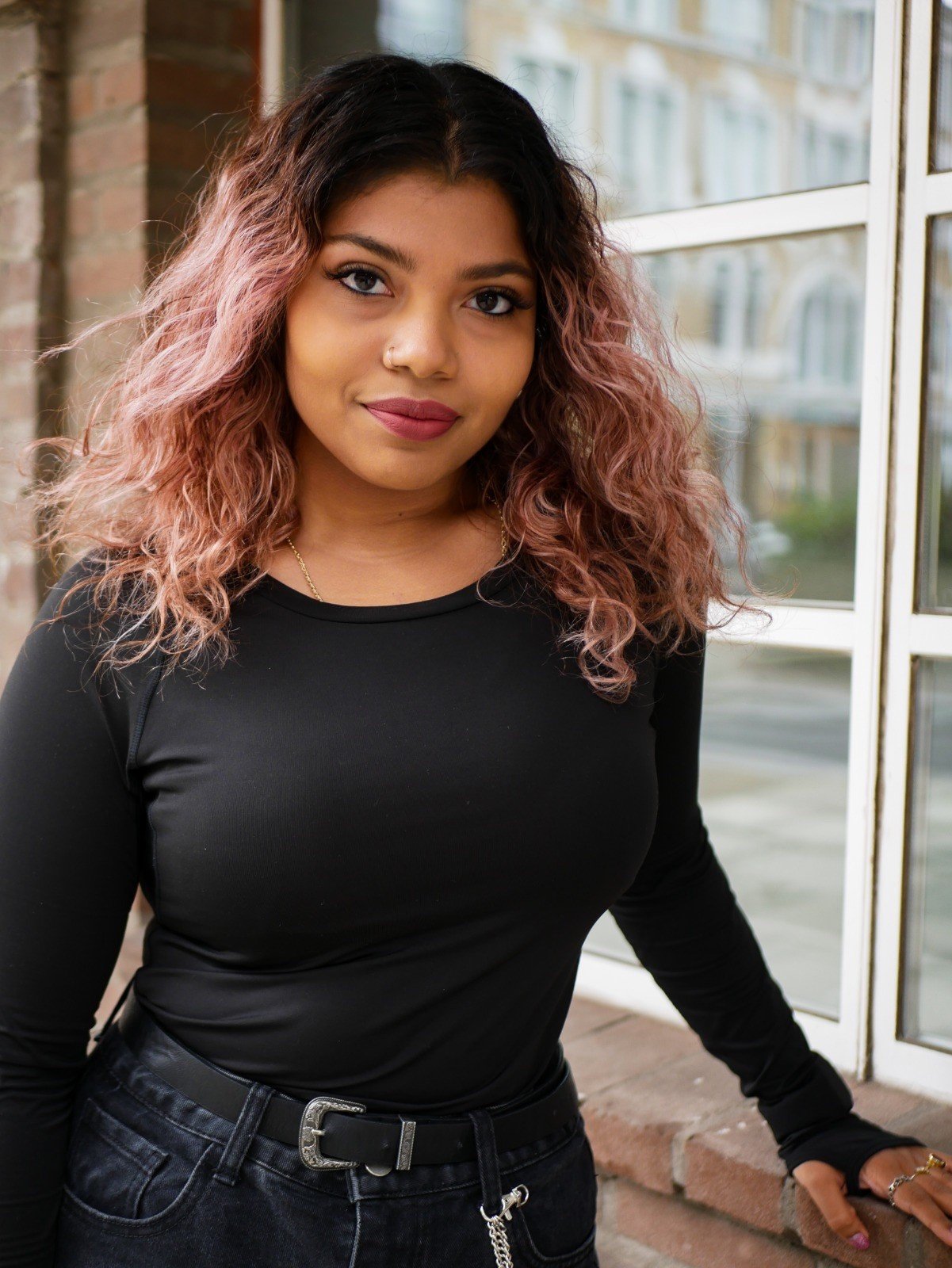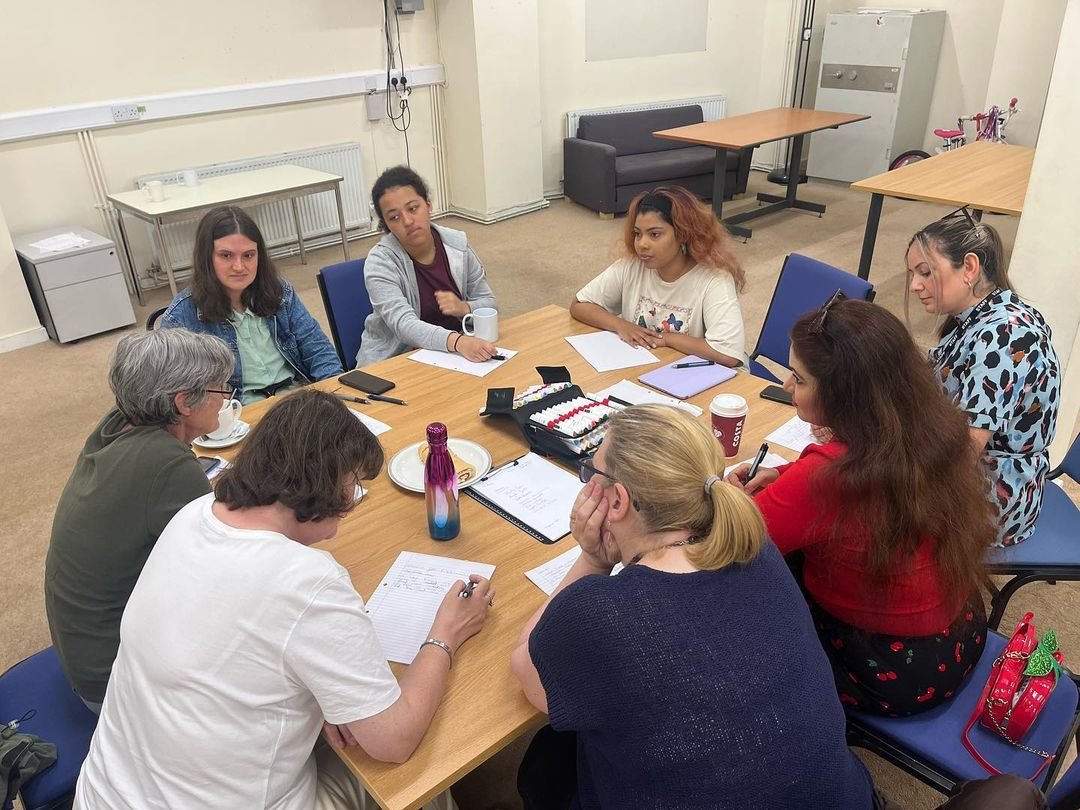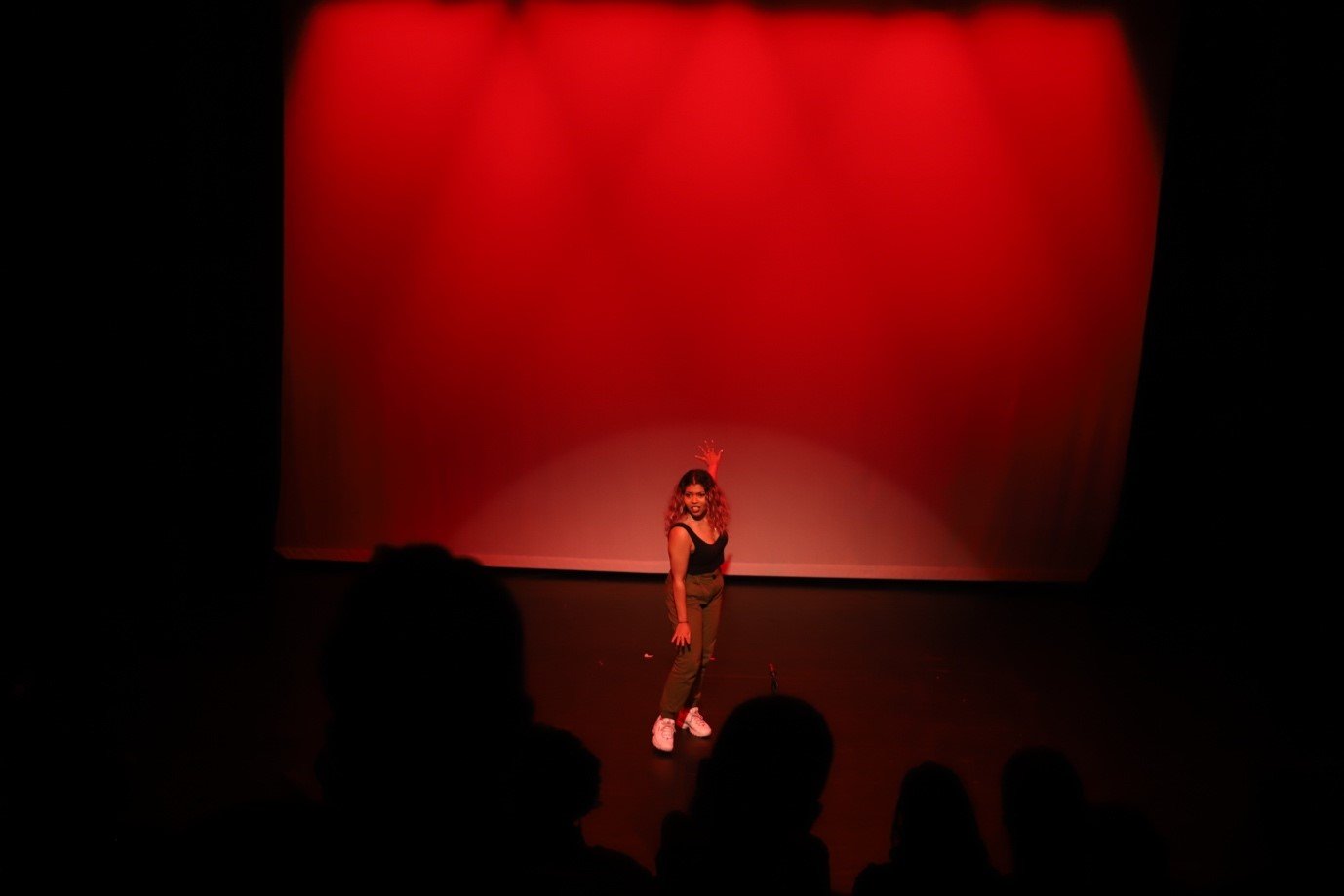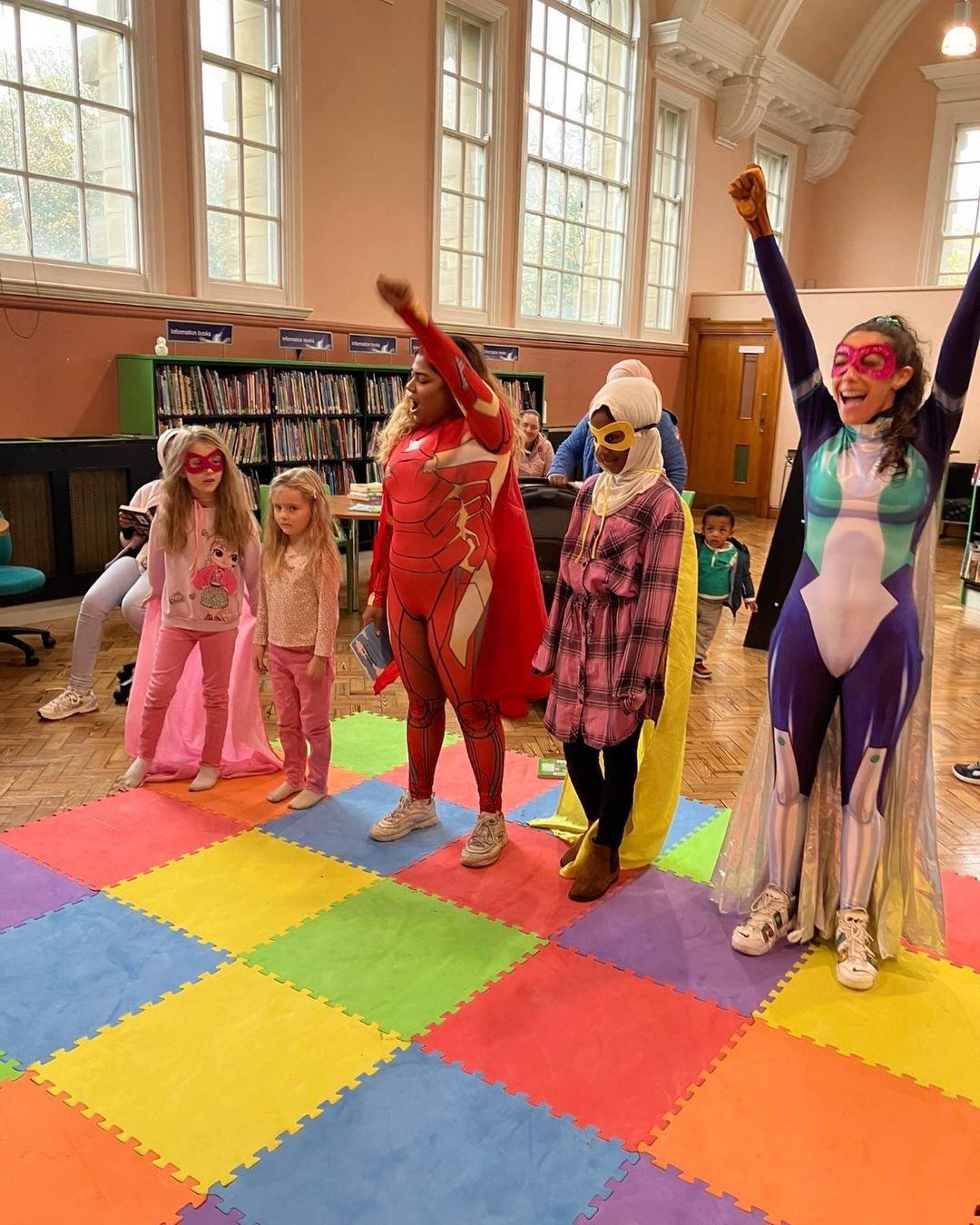We spoke with Claire Beerjeraz about their various creative outlets, their upcoming work and their advice for creative people!
Could we have a brief introduction of your name, what you do and what you write?
Claire Beerjeraz: My name is Claire Beerjeraz, I’m a spoken word artist, performer, writer, director and creative arts psychotherapist. I tend to write a lot of my pieces about anti-racism, decolonisation and essentially, all of my lived experiences that intertwine with intersections of my identity.
When did you start writing? What made you interested in writing?
CB: I genuinely can’t remember when I first started writing, but I do know why I started writing. For me, it was just making sense of this really confusing world that I was living in. so, a lot of it was meaning-making and a sense of healing; it wasn’t necessarily things that I would share with people, but I was always intrigued by storytelling and transferring my thoughts into words.
Do you write poetry or prose? Do you prefer writing by hand or typing? Why?
CB: I’m more of a poetry girl, I would say - although I consider myself a spoken word artist, and that can be up for debate if there’s a difference between the two. When I come to formulating my ideas and writing down concepts, themes and the pieces themselves, I tend to do that on my phone. I think growing up in the era I had, I always had a phone around me, more than a notebook, and so I always find that convenient. Also, the fact that my phone syncs up with my laptop is really, really handy.
How did you begin to first circulate your writing?
CB: When it came to circulating my writing, I definitely started to explore open mics. So, a lot of the writing I would share was through vocalising it and performing it rather than posting it online. I know a lot of people tend to do that now, and I think that’s a great way of sharing writing in different, accessible formats. But yeah, for myself, it was connecting face-to-face with like-minded creatives.
Do you have a fanciful/pipeline piece of work that you want to write?
CB: Yeah! I have so many pieces that are just ideas and concepts that I just want to get down and make a reality. For one, is definitely this play that I have been devising and it started off as a monologue, spoken word piece – a one woman show, as you may say. I definitely want to get that more structured and ready to share with everyone.
How do you deal with writer’s block?
CB: I think writer’s block is such a common thing. I have definitely experienced it and I think when you freelance as a writer and you’ve got commissions and you have to write on certain topics and pieces, I think sometimes it feeds into that writer’s block because you get so used to writing for other people, you forget how to write for yourself. So, what I find helps is taking some time with myself, and just going with that and if I’ve got writer’s block, then that’s okay. I think sometimes we can get stuck in that sense of being able to write, and we put pressure on ourselves in being like it’s not ‘good’ and sometimes we just need to dismantle that pressure and identify where that pressure’s coming from and just write no matter what.
How does writing express your thoughts more so than other mediums?
CB: I find that having a thought turn into literal words that you can see on paper, and also words that you can hear, feels really profound. It takes it from this idealistic sense of self to a very realistic sense of self. Not only do I feel like I hear myself more when I write and when I perform that writing, but I feel more heard through it as well. And that’s what makes writing and poetry so special to me.
What would you hope your work provides for other people?
CB: When I write, I tend to have several different, what I call ‘pillars’, to help guide me and help me stick to my most authentic creative self. So, a lot of that is for healing, for connection and for positive action. I consider myself as an artivist – someone who combines the concepts of art with activism, and so I use those pillars to help inform my writing to make sure that I am in the right tracks to make the positive changes that I want for myself and for those who might be listening or reading my pieces of work.
What is one thing you would say to your younger self?
CB: If I could say anything to my younger self, it would be that your voice matters, and it totally deserves to be heard. I go to a lot of spaces where I facilitate workshops with young people, and I really reinforce that because I think growing up myself, I felt really invalidated with my voice, and so turned to writing but I never shared that. It was when I began to share that writing and felt confident and empowered through my writing, I realised, “Wow, people really resonate with what I’m saying, people can connect with that”, but I find that really transformative as well. So, definitely – your voice matters and it deserves to be heard.
One piece of advice you heard that has stayed with you until today, and you would want young writers to know?
CB: There’re so many pieces of advice that I would love to share – I guess, one thing in particular, not necessarily just for writers but for anyone who in life wants to explore an aspect of themselves like creativity is the question of “Are you living or are you existing?”
I find that trying to delve into a creative field or even a creative hobby, there can be loads of restrictions and ideas and stigma around what that means and what that looks like, but ultimately, if it makes you feel like you’re living, you are doing the right thing. So, I always pose that question to myself when I take on a project or a piece of writing – “Is it making me live, or is it making me exist?” And sometimes we have to do those things that are allowing us to exist, but ultimately, we want the balance to be living more than existing. I think that’s the best piece of advice I can give.




